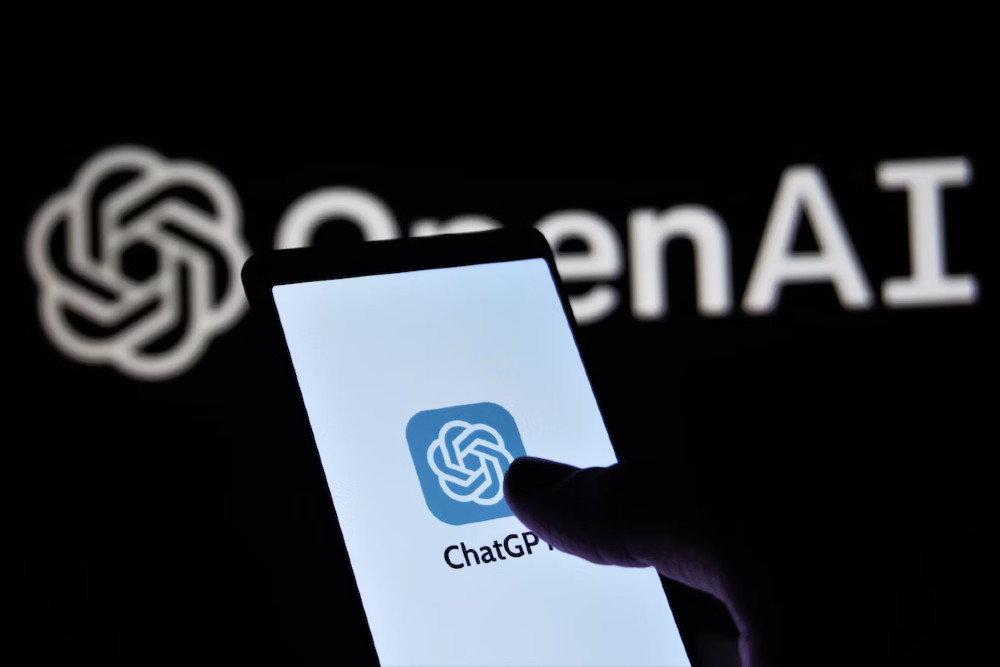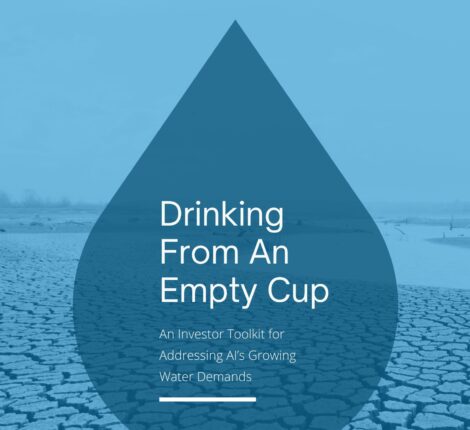Our CEO’s Q2 2023 Letter to Clients
August 7, 2023 Second Quarter 2023
Our View
Powered by computer algorithms, these techniques have broadened communication among like-minded people in the name of expanding connections and increasing camaraderie. In turn, aggregation of this data has accelerated the spread of information, news, and advertising among people with shared perspectives. In addition to enhancing human connection, there have been unfortunate consequences including the rise of siloes where people only tolerate certain beliefs and actively avoid engaging with those who have different perspectives, experiences, and needs. What we understand to be history is being challenged, common principles are being rejected, and the U.S. Constitution, including the separation of powers, is in the process of being reinterpreted to benefit certain constituents at the expense of others.
Challenging one another in direct yet compassionate ways that allow for the evolution, growth, and sharing of divergent perspectives has practically stopped. Yet, being able and willing to reach common understandings and compromise is an essential part of maintaining human connection and contributes exponentially to the healthy functioning of a democracy. Unfortunately, technology and capitalism seem to have coalesced in the name of efficiency, progress, and, ironically, connection to destroy the social progress we have worked to achieve in the last 75 years.
The most recent, and arguably most significant, manifestation is generative artificial intelligence. Artificial intelligence (AI) has been around for a long time. How many times in the last ten years alone has a robotic voice asked for your birthdate and the last four digits of your social security number so they can route your call to the correct person? How often do you find yourself interacting with a “live chat” that is really a bot? What’s new to us as public citizens is generative AI.
We perceive that generative AI is a likely next step in segmenting information and further separating populations of people from one another even though it may appear to be the opposite. One might assume that having all information available and accessible will quickly and cheaply synthesize the “truth” and generate new ideas that are beyond what any one person or group has achieved. However, the generation of new ideas, even with advanced generative scripts, is only as good as the material that has been fed in and the synthesis capabilities of the AI.
In addition to an externalized perspective on generative AI, we are concerned about its effects on us as humans. Individuals generate ideas depending on life experiences, brain capacity, cognition, and other factors. Developing a sense of right and wrong—a moral compass—throughout one’s life comes from listening to divergent voices, engaging in conversations, and sharing information among individuals who have unique experiences. Arguably, dependence on technology has already had an impact on our brain function. For example, most people rely on directional technology to get us from point A to point B. Eventually, will we be entirely dependent on these assorted aids? What will happen if we rely on technology to do our advanced thinking? As a country, as a society, as a human race are we creating solutions in the name of humanity or in the name of profit?
In a supplement to this quarter’s letter, our colleague, Tenzing Tashishar, highlights the risks surrounding generative artificial intelligence, which is increasingly being heralded as the biggest transformation since the Industrial Revolution. We find this analogy ironic as scientists will have enough data by next year to confirm whether mankind’s reliance on burning fossil fuels since the Industrial Revolution also sowed the seeds for the onset of the Anthropocene Era, or the point when humanity’s influence on the planet’s geology became irreversible. AI’s risks require nuanced governance, not hasty commercialization.
We, as shareholders in technology companies, also have a critical role in pushing for enhanced disclosure and transparency on risks related to these new business models. Stay tuned for updates on our thinking and engagements in this area.
Economic Outlook
The S&P 500 rose 17% in the first half of 2023[1], even though many economists predicted a recession this year. The fact that the widely anticipated recession has not occurred so far reminds us of the fabled boy who cried wolf.
However, beyond the headlines, there are signs that consumer and business demand has moderated notably. Yet, the broad economic pullback that many predicted has not materialized as the job market remains resilient. Since 2022, there have been more available jobs than job seekers due to the wave of baby boomer retirements, lower immigration rates, and the “great resignation” phenomenon in which the pandemic led many people to reassess their work-life balance and priorities.
We believe even the double-digit performance of the S&P 500 and our preferred equity benchmark (70% SP 1500 and 30% MSCI EAFE) is misleading. Most of the YTD gains are due to the outperformance of the technology and communications sector, especially companies benefiting from artificial intelligence. If we remove the positive returns of the so-called “Magnificent Seven” (Amazon, Apple, Google, Meta, Microsoft, Nvidia, and Tesla), the broader stock market performance was up 6% for the first half of 2023.
We remain skeptical that the economy has entered a “Goldilocks” phase of steady growth, low inflation, and plentiful jobs even as we acknowledge the near futility of accurate short-term forecasts. Over the medium to long-term, our view is that the world remains severely imbalanced as it struggles to address complex interrelated societal and ecological challenges. As a result, we anticipate continued elevated volatility and uncertainty in financial markets going forward. This stems from our outlook that several long-term structural shifts are showing signs of converging:
- The monetary cycle has entered a new phase after 40 years of declining interest rates. The Fed has increased the overnight bank lending rate (known as the fed funds rate) by 525 basis points (from near-zero to around 5.25% at the lower end) over the last 18 months. Interest rate sensitive industries such as commercial real estate, regional banks, and debt-laden businesses continue to be under financial stress. Some of these strains will most likely become even more acute as companies face the challenge of refinancing maturing debt at higher interest rates in the coming years.
- Artificial Intelligence, with the recent feverish excitement around generative AI models, has now become a public reality. For example. systems such as Bard, ChatGPT, and Claude could presumably analyze portfolio performance and write this letter in minutes (if not seconds!). While efficiency would improve drastically, we could pay a price in the form of inaccuracy or worse. These new AI models can quickly aggregate, disseminate, and promote biases that have plagued our society for decades. For example, in a study completed by the Brookings Institution,[2] generative AI models can be easily used to send mass emails to legislators on policy such as gun control and reproductive rights, thus influencing a key democratic engagement process with inaccurate perceptions of constituent concern and undermining the foundation of a free and democratic society.
- Ecological reckoning, as predicted in the UN’s Intergovernmental Panel on Climate Change seminal report published in 2021, is here with extreme weather events from severe heat waves in the many regions of the Northern hemisphere to torrential rainfall and flooding in Pakistan, India, South Korea, Japan, and Vermont in the US. In May, State Farm, California’s largest home insurance provider, announced a complete retreat from that state’s market, citing the cost of “rapidly growing catastrophic exposure.”[3]
- Increased social polarization, despair, and rise of nationalist and anti-inclusive sentiments are exemplified by several Supreme Court decisions, including the recent overturning of affirmative action in college admissions. Distrust in government and institutions is becoming broad-based. In a 2021 survey by the Ipsos Global Advisor, two-thirds to three quarters of participants across 25 countries agreed with the statement: “The [country’s] economy is rigged to advantage the rich and the powerful.”[4]
The combination of these seismic shifts, shortsighted policy responses, and the rapid pace of technological innovations increases vulnerability to shocks. As a result, we have been laser-focused on managing risk in client portfolios. We view risk as either a permanent loss of capital and/or our clients’ inability to meet specific objectives. Hence, our focus is on understanding your short-term liquidity needs so we can earmark sufficient liquid funds. Within the equity portion of your portfolio, we seek to own what we believe to be high-quality stocks in companies that demonstrate a focus on achieving sustainable, consistent earnings growth led by management teams that have proven to be good stewards of capital and labor and responsive to swiftly changing dynamics. We look for companies that make products or sell services that are essential or beneficial to human life and particularly those attempting to solve or mitigate some of the most pervasive problems of our time. We continue to follow our systematic quarterly rebalancing strategy where we trim individual stocks that are well past their target weights and reallocate to stocks that are under their target level. For fixed income allocation, we continue to seek opportunities to add higher yielding treasuries or bonds issued by government sponsored agencies to the portfolio. In lieu of leaving short term funds in cash, we have moved a portion of cash to higher yielding money market funds. For bonds that have declined in price, we expect to hold these to maturity and collect the principal value. We encourage all clients to review your performance report (sent by encrypted email), including your current equity exposure compared with your target allocation, and to be in touch with our client services team (clientservices@northstarasset.com) if you have questions.
Outside Investments[5]
The Supreme Court’s recent rulings demonstrate once again that the endurance of progressive values in this country remains subject to the whims of the elite ruling class that dominate our social, political, and economic systems. Despite these unconscionable setbacks, we remain fervent believers in the need to advocate for change within these dominant institutions. From Brown v Board of Education to Obergefell v. Hodges, these top-down decisions have the means to introduce sweeping and positive changes for social and ecological movements.
That said, we are also reminded that advocating for change from within is not our only option. In fact, vulnerable communities and causes have long sought to champion solutions that create change from the outside rather than within, acknowledging the need for direct and immediate intervention. The Black Panther Party is a phenomenal example of this. In response to the lack of state social programming, the Black Panthers created their own system, providing free breakfast, education, and community health clinics.
According to a Vox article,[6] the Panthers established 36 breakfast programs across the country from Kansas City to New York City, feeding more than 50,000. It was reported that a US government official admitted that the Panthers efforts to address hunger outpaced those of the US government.
While these efforts to intervene on the margins often begin small, we also know that they can be mighty. Our legal and legislative systems have repeatedly demonstrated that we cannot always count on them to make true on America’s promise of equality and justice. Once again, it is up to us to ensure that we support the groups that are.
Shareholder Activism Update
For NorthStar, shareholder activism is about holding companies accountable for harm they cause (directly and indirectly) to communities, employees, society, and the environment, and trying to advocate effectively to avoid future damage. We do this work because we believe in the responsibility that comes with public company ownership, and also because we believe in the long-term value to your portfolios of ensuring that all stakeholders related to those companies are healthy, safe, and thriving.
The polarized political environment of the past 6+ years has made that work increasingly more difficult both for shareholder activists like NorthStar and the nonprofit organizations that we partner with and support. While Conservative attacks on the Shareholder Proposal Rule continue to escalate and “anti-ESG” and “anti-woke” propaganda create a Republican echo chamber, the past two years of Supreme Court decisions have brought about changes that can (and will) negatively affect the lives of people and communities that NorthStar has defended for decades. So far, our rights as shareholders remain intact and the recent Supreme Court decisions do not directly affect our work; however, we are acutely aware of the potential “chilling effect” these decisions can have on portfolio companies’ diversity, equity, and inclusion (DEI)/racial equity work or support for LGBTQ+ employees and communities. As fear of litigation against corporate DEI programs increases, companies may shy away from the bold and forward-moving progress that we seek of companies in your portfolios. Nevertheless, we remain undeterred and will persist through the noise towards the end goals of racial and gender equity, economic equity, preservation of human rights, furthering environmental justice, and improving corporate governance.
For the spring 2023 proxy season, we had eight shareholder proposals go to a vote, which resulted in many proposals receiving strong voting support of shareholders. Our results are shown in the below chart. Also this summer, we are writing letters to Home Depot and Unilever about concerning reports that both companies are financially supporting issues that we believe are inappropriate and detrimental. We will update you on their responses later this year.
You may remember our earlier 2023 success in an engagement with Xylem that resulted in the development of a fair chance employment program. We are happy to share more details through a recent press release on our website: NorthStar Completes Successful Shareholder Engagement to Develop Fair Chance Employment Program.[7]
As we move through summer, we develop our activism program for 2024. So far, our plan is to focus on fair chance employment (further expanding our existing campaign) and revisit our work on water scarcity and the human right to water and sanitation. Long-time clients may remember that NorthStar pioneered shareholder proposals on the human right to water as early as 2007 and succeeded in garnering nine company agreements that included policies on the human right to water. Given the acceleration of the climate crisis and the potentially devastating effect society is imposing upon water resources, it is clear to us that revisiting water usage, pollution, reuse, and prioritization for communities are critical issues that we can influence. We will also continue targeted engagements on corporate governance and human rights due diligence in supply chains.
NorthStar Proposals – Spring 2023 Company Meetings
| Company | Proposal |
| Adobe | Fair chance employment (proactive recruitment of people with arrest or incarceration records) |
| Alphabet | Equal shareholder voting |
| A.O. Smith | Systemic racism in company culture |
| Badger Meter | Fair chance employment (proactive recruitment of people with arrest or incarceration records) |
| Digital Realty | Systemic racism in company culture |
| IDEX Corp. | Fair chance employment (proactive recruitment of people with arrest or incarceration records) |
| Meta Platforms | Equal shareholder voting |
| TJX Companies | Human rights due diligence in the supply chain |
Julie N.W. Goodridge Nimrit Kang
Founder & CEO Chief Investment Officer
The forecasts, opinions, and estimates expressed in this report constitute our judgment as of the date of this letter and are subject to change without notice based on market, economic, and other conditions. The assumptions underlying these forecasts concern future events over which we have no control and may turn out to be materially different from actual experience. All data contained in this letter is from sources deemed to be reliable but cannot be guaranteed as to accuracy or completeness. All investments are subject to risk, including loss of principal. Past performance is no guarantee of future results. It is not possible to invest directly in an index.
Links to third party sites are provided for your convenience and do not constitute an endorsement. These sites may not have the same privacy, security or accessibility standards.
————————————————————————————————————————————
Footnotes:
[1] All references to financial performance in this letter are sourced from Bloomberg L.P. (2023)
[2] https://www.brookings.edu/articles/how-generative-ai-impacts-democratic-engagement/
[3] https://www.economist.com/finance-and-economics/2023/07/13/why-people-struggle-to-understand-climate-risk
[4] Ipsos.com/en-us/most-americans-think-economy-rigged-rich-and-powerful
[5] Outside Investments are privately placed with various types of entities, as described above. In addition to the risks of equity, (which include, but are not limited to, changes in revenue, margins, earnings, dividends, cash flow, balance sheet, leverage, liquidity, solvency, legal matters, negative publicity, brand image, and general market volatility) and the risks of fixed income investing (such as credit risk, interest rate changes and the yield curve, inflation, default, monetary policy changes, government instability, and other risks), Outside Investments are typically illiquid.
[6] https://www.vox.com/2016/2/14/10981986/black-panthers-breakfast-beyonce




